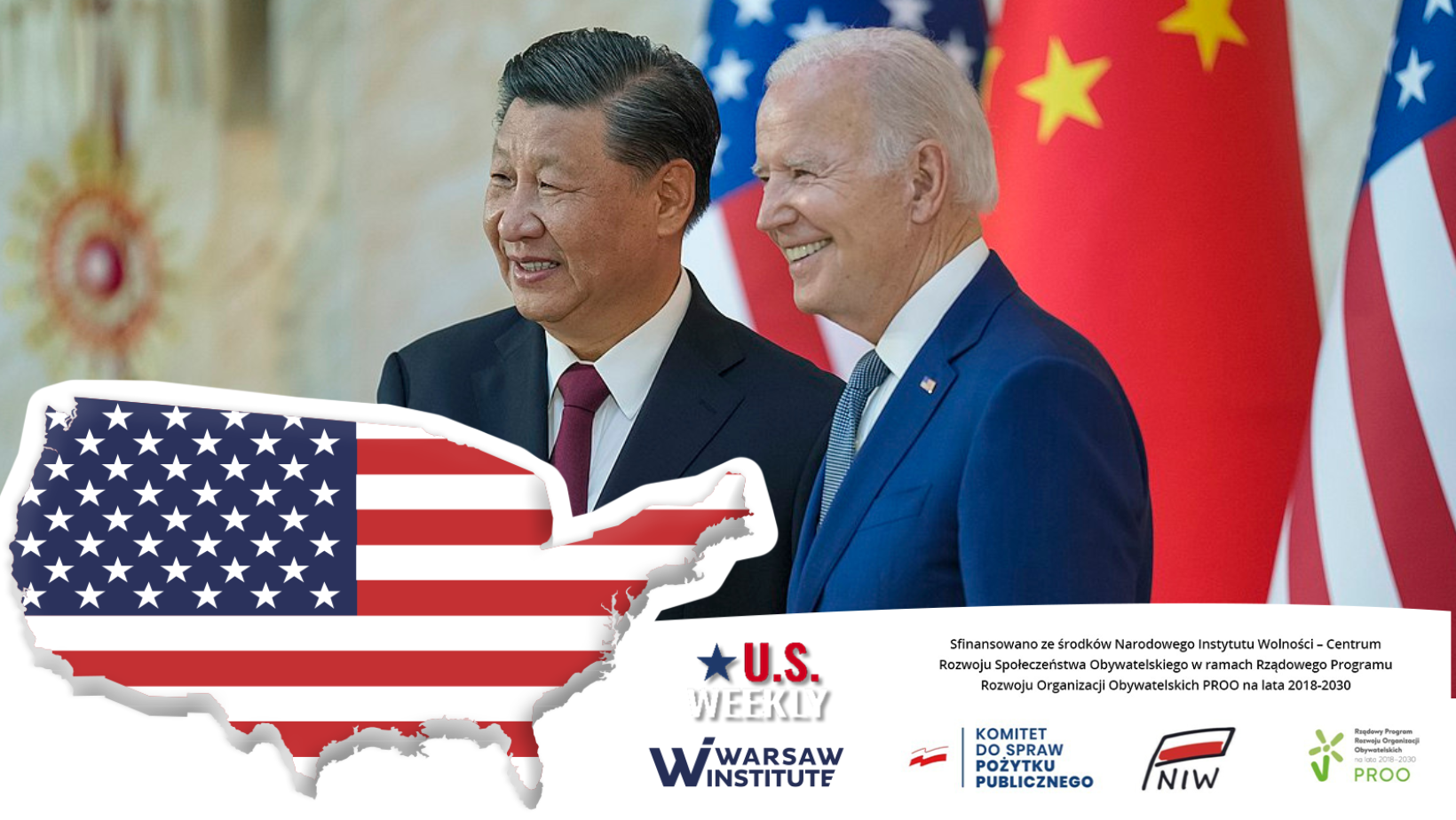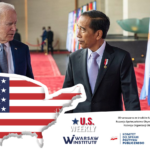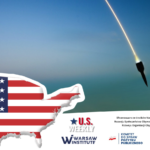
U.S. WEEKLY offers an in-depth analysis of various geopolitical processes that have direct effect on US’ domestic and foreign policies. This particular analytical column is possible thanks to the cooperation with polish media abroad: Dziennik Związkowy – Polish Daily News, Polishexpress of United Kingdom and WIrlandii.pl of Ireland
Date: 12 December 2022
After Bali: The Biden-Xi Talks
The rivalry between the US and China has been intensifying since 2018. And, since October 12, 2022, the White House’s reasserted National Security Strategy (NSS) has highlighted China as a direct and imminent threat.

U.S. President Joe Biden and Chinese President Xi Jinping met earlier this month during the G20 summit on the Indonesian island of Bali with the expectation to find common ground on some of the contending topics among both nations. However, following House Speaker Nancy Pelosi’s visit to Taiwan last August, the bilateral relationship between them continues to deteriorate. Despite the efforts to reach a compromise, the meeting in Bali did not produce the intended results. After all, the widespread demonstrations in China protesting against the sustained COVID-19 lockdown, the controversial political victory of Xi’s third term in power and questions concerning the increase nuclear and ballistic activities in the North Korean peninsula have set the tone of the conversations. Notwithstanding, Taiwan remained the major focus during their three-hour meeting.
In the U.S., Chinesse students demonstrated seeking freedom from China’s “zero-COVID” policy. At the centre of the protest, speak up for Freedom back home, claiming that Xi’s government is no less but a “fascist leader”. Despite this, both leaders agreed against the use of nuclear weapons in Ukraine. On its part, President Biden stressed Beijing’s “obligation to temper North Korea’s destabilizing missile and nuclear activity.” Confrontation beyond commercial policies were evident more than ever regarding topics such as Taiwan, technology and human rights. Beijing has made clear that Taiwan is and will remain at the core of its national interest.
In addition, the long-seething South China Sea territorial conflicts involving China, the Philippines, Vietnam, Malaysia, Taiwan and Brunei have long been regarded as a delicate fault line in the U.S.-China rivalry in the region. Recently, a heated exchange of claims took place after a U.S. Navy warship performed the first freedom of navigation operation (FONOP) in the South China Sea. In this context, “China says this action by the US military “seriously infringes on China’s sovereignty and security”. Having said this, China’s pacific ambitions have also progressively rattled Australians, particularly, amidst the agreement between China and the Solomon Islands early this year. The agreement is said to allow China to enhance its naval presence in the South-Pacific guaranteed strategic access to important waters.
In this context, the U.S. alone has acknowledge that general containment will require strong allies, calling for the EU to step in. However, “the European Union has dubbed China as a “strategic rival” on different occasions, it is pursuing a different approach from the U.S.” Back in October, the U.S. imposed restrictions on Chinese access to certain U.S.-developed technologies. For which the EU responded on a similar stand through a series of legislative proposals. Notwithstanding, the EU will try to carve out its own China strategy. This diverging perspectives in Chinesse policy may drive a new phase in the Transatlantic Rift between the U.S. and the EU. With the visit of German Chancellor Olaf Scholz to China in early November and the European Council President Charles Michel last Thursday, the EU sees the relationship with China to be ‘improving’. In another turn, the U.S. comes to agreement with France on military elements pertaining to Russian and NATO upon the official dinner hosted by President Biden welcoming French President Emmanuel Macron to the White House last Thursday. Indeed, one cannot deny that transatlantic politics have entangled and the geopolitical reality of the contemporary landscape seems more complex than ever.
Katja-Elisabeth Herrmann Katja-Elisabeth works as a research fellow at the Warsaw Institute. She has a background in Transatlantic Affairs from the College of Europe (Warsaw, Poland) and the Fletcher School of Law and Diplomacy at Tufts University. Additionally, Katja-Elisabeth holds a BA in International Relations and International Organizations which she combined with a degree in International and European Law from the University of Groningen. During her undergraduate studies, her main focus explored the nexus between technology and law in the European Union. She has recently been awarded the Squire Patton Boggs Foundation public policy fellowship in 2022. As part of her work under the fellowship program, her research is devoted to relevant topics of transatlantic affairs interest from a legal and political perspective.
Sources:
1. Amaro, Silvia “The U.S. wants the EU to be strict with China. But Europe can’t afford it” CNBC News (December 2, 2022) Available at: <https://www.cnbc.com/2022/12/02/the-us-wants-the-eu-to-be-strict-with-china-but-europe-cant-afford-it.html> Accessed December 2022.
2. Associated Press “US dismisses Chinese objections to South China Sea mission” ABS News (November 30, 2022) Available at: <https://abcnews.go.com/International/wireStory/us-dismisses-china-objections-south-china-sea-mission-94131964> Accessed November 2022.
3. Collinson Stephen, “Xi and Biden cool the heat, but China and the US are still on collision course” CNN News (November 14, 2022) Available at: <https://edition.cnn.com/2022/11/14/politics/joe-biden-xi-jinping-china-us-relations/index.html> Accessed December 2022.
4. Lendon Brad, “US and China in first South China Sea encounter since Xi-Biden meeting” CNN News (November 29, 2022) Available at: <https://edition.cnn.com/2022/11/29/asia/us-navy-freedom-of-navigation-south-china-sea-intl-hnk-ml/index.html> Accessed December 2022.
5. Levine Rosie, Jennifer Staats, Alex Stephenson, “Three Key Takeaways from the Biden-Xi Summit” United States Institute for Peace (November 17, 2022) Available at: <https://www.usip.org/publications/2022/11/three-key-takeaways-biden-xi-summit> Accessed November 2022.
6. Restuccia Andrew, Ken Thomas, Chun Han Wong and Keith Zhai, “Biden-Xi Talks Mark Shift in U.S.-China Ties Toward Managing Fierce Competition” The Washington Post Journal (November 15, 2022) Available at: <https://www.wsj.com/articles/biden-xi-talks-mark-shift-in-u-s-china-ties-toward-managing-fierce-competition-11668534046> Accessed December 2022.
7. Lee Elzabeth and Asim Kashgarian, “Protests in China Prompt Chinese Students in US to Speak Out” VOA News (December 01, 2022) Available at: <https://www.voanews.com/a/protests-in-china-prompt-chinese-students-in-us-to-speak-out-/6858691.html> Accessed December 2022.
8. Liu Zongyuan Zoe, “What the China-Solomon Islands Pact Means for the U.S. and South Pacific” Council on Foreign Relations (May 4, 2022) Available at: <https://www.cfr.org/in-brief/china-solomon-islands-security-pact-us-south-pacific> Accessed December 2022.
9. Wong Tessa, “Xi Biden meeting: US leader promises ‘no new Cold War’ with China” BBC News (November 14, 2022) Available at: <https://www.bbc.com/news/world-asia-63628454> > Accessed December 2022.
Support Us
If content prepared by Warsaw Institute team is useful for you, please support our actions. Donations from private persons are necessary for the continuation of our mission.
All texts published by the Warsaw Institute Foundation may be disseminated on the condition that their origin is credited. Images may not be used without permission.

















